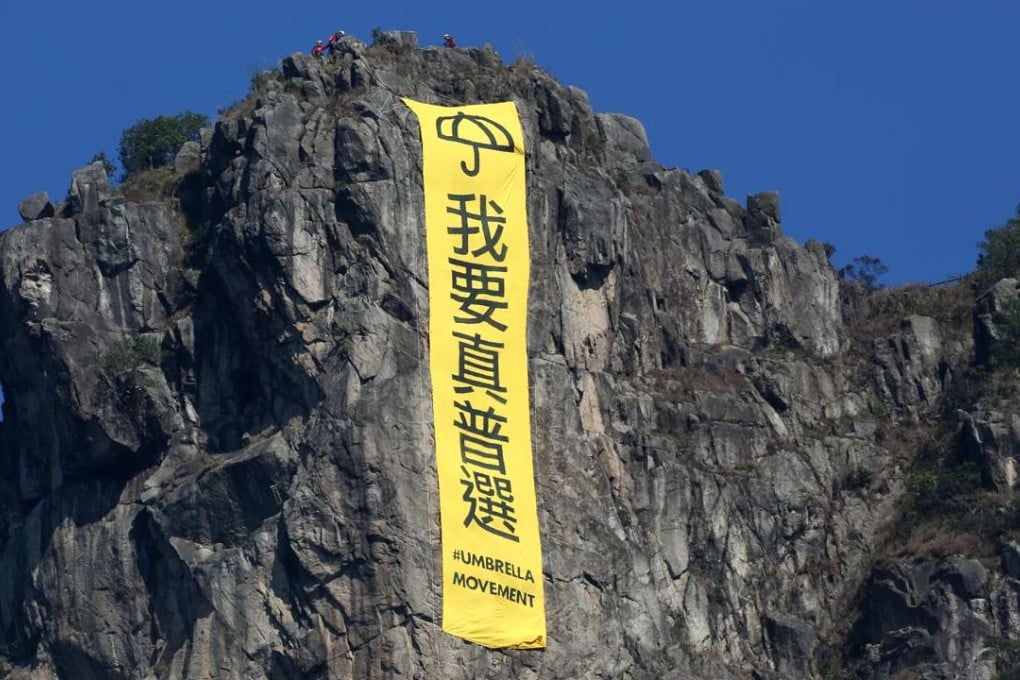How Hong Kong’s next chief executive can help kill talk of independence
Michael C. Davis says the city’s next leader must understand that only progress towards the universal suffrage promised in the Basic Law can heal our political divide

Having spent the past couple of months in America as a visiting democracy fellow, I have been struck by the huge gap in perception between progressive Americans on the left and Donald Trump’s supporters on the right. A similar divide was evident over Brexit in the UK last summer and has been lifting its ugly head in elections in France and Italy. Such gaps have appeared in the past – from Carter to Reagan, from Bush to Obama – but somehow the institutions of democracy eventually work to moderate the divide.
This observation has caused me to reflect on the growing divide between the more radical localists and the establishment camp in Hong Kong. As candidates step forward with claims to fill the soon-to-be-vacant office of the chief executive, it may be time for a change of tone. Whoever wins will have to deal with this political divide.
One can only despair at recent government attempts to dismiss multiple legislators elected by a popular mandate that the chief executive himself lacks. Will the new chief executive candidates offer a path to reconciliation or will the divide between the establishment and the pan-democratic camps grow into an insurmountable chasm?
Seven policy proposals for Hong Kong’s next chief executive

‘One country, two systems’ and a vicious circle in Hong Kong
It is widely understood that the radical independence advocates are pursuing an impossible goal. This is not because a city state of Hong Kong’s size is impossible but simply because the mainland regime they face will not allow it. Practically, a city on the edge of a large country can divorce itself from that country and still thrive; Singapore and Malaysia are testimony to that. If China for some crazy reason would not want the services of Hong Kong’s vast pool of talent, the rest of the region and the world would. The reason the independence movement is a non-starter is simply because China will not allow it.
Perhaps the argument for independence might be that you hang on until China reforms and becomes more willing to let its peripheral communities go their own way. But when that level of political reform arises in China, the reason for opting out would have gone.
This brings us back to the problem of polarisation. Most mainstream democrats have distanced themselves from the independence calls, knowing such to be a non-starter. Even practical members of the “localist camp” have pragmatically shifted to the language of “self-determination”.